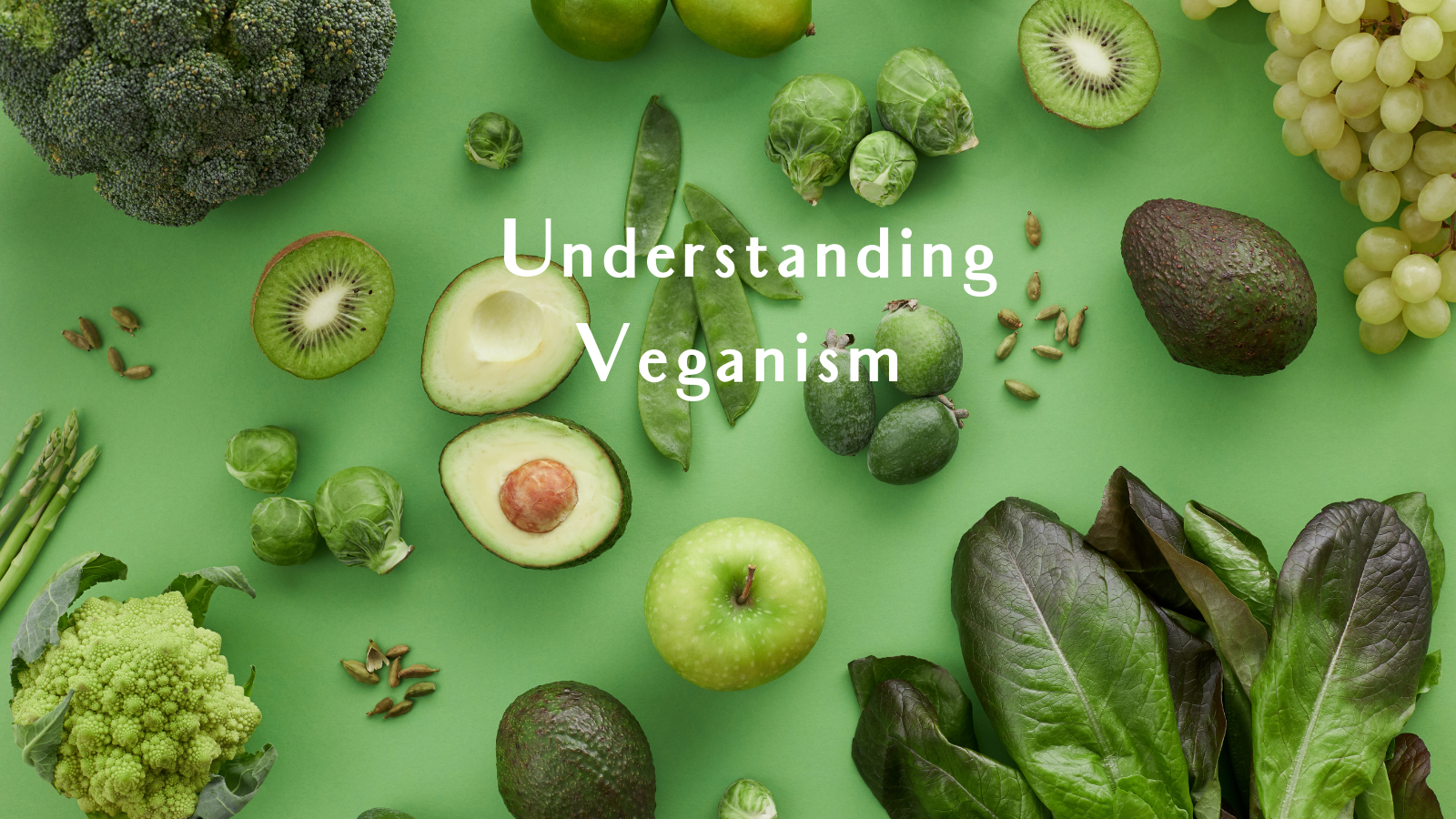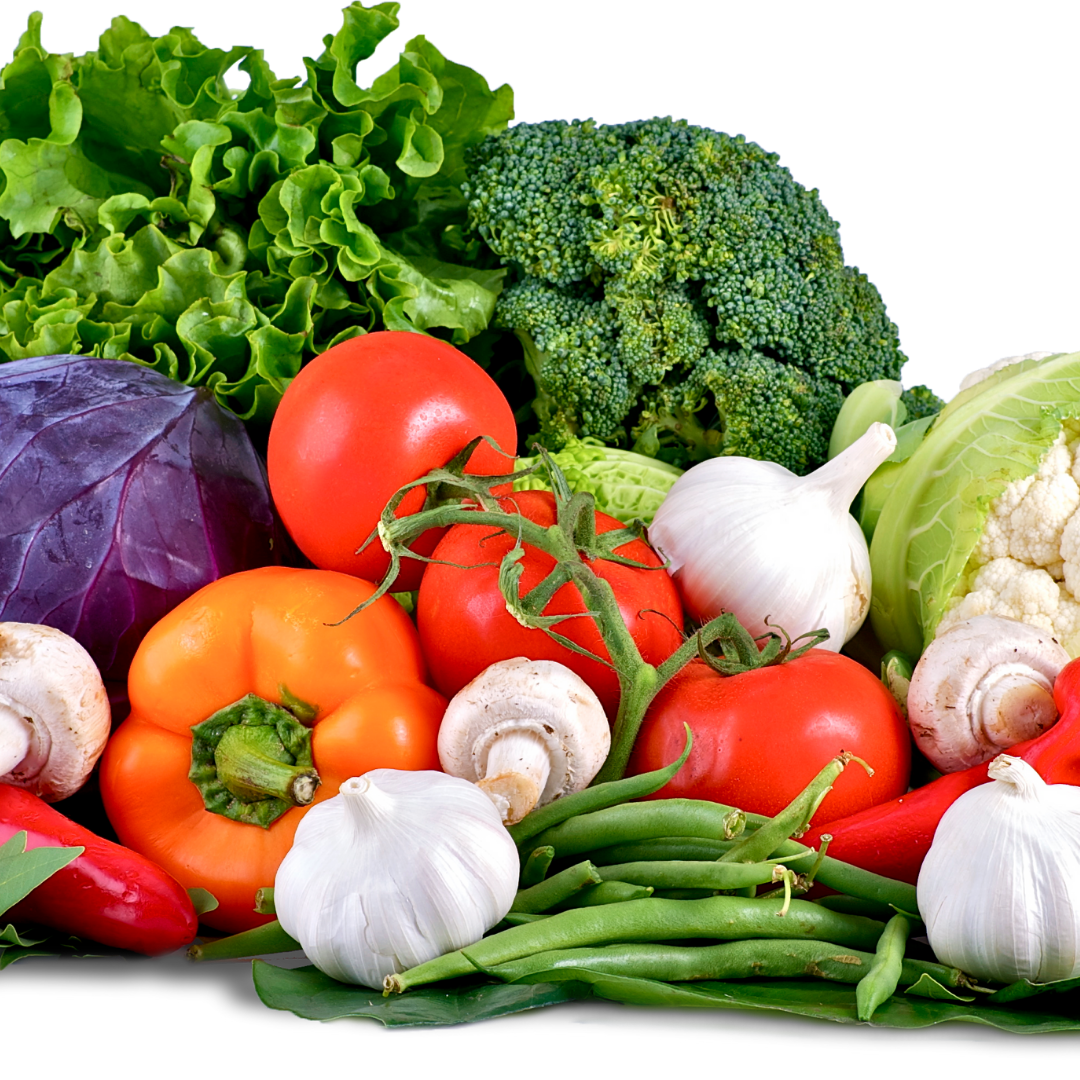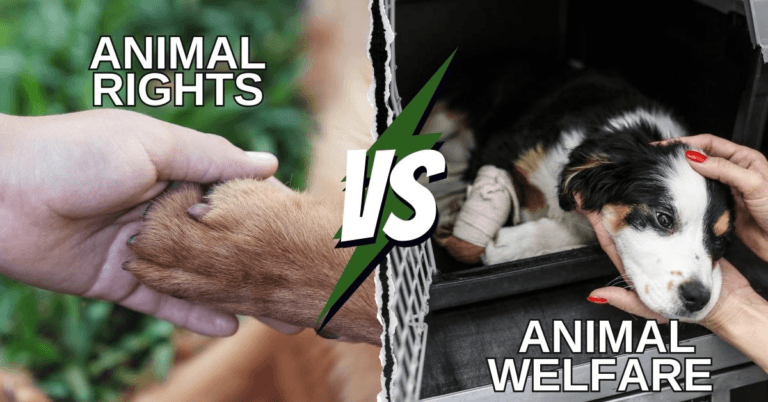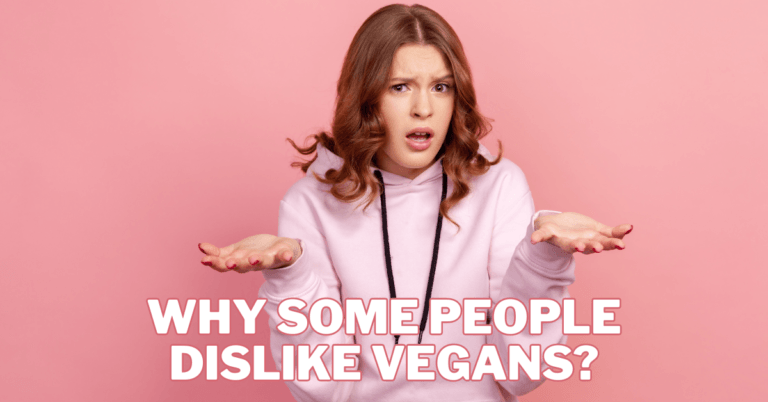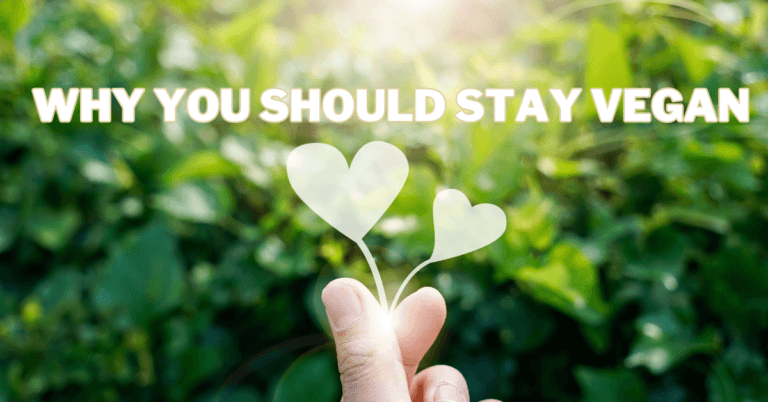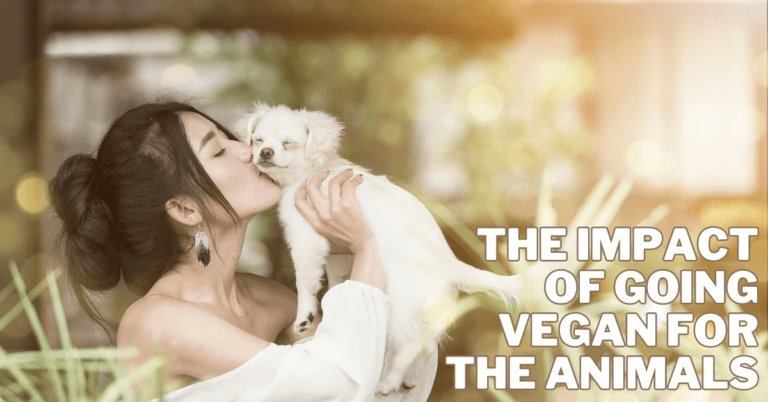Understanding Veganism
Understanding Veganism
Welcome to our blog post about veganism. This article will thoroughly explain veganism, whether you're curious about the way of life, thinking about making the switch, or want to know more.
Veganism is a philosophy and way of life that goes beyond only our food choices. It includes moral considerations, environmental awareness, and a dedication to compassion for animals.
In this article, we will delve into the core principles of veganism, explore its history, examine its health benefits, and shed light on its environmental impact.
We will also address common misconceptions and provide practical tips for those interested in veganism.
Join us on this journey of understanding veganism and discover why people choose this compassionate and sustainable way of living.
History Of Veganism
History of Veganism: Veganism has a rich history that dates back to ancient times, although the term itself was coined much later.
The concept of abstaining from animal products can be traced to various religious and philosophical traditions.
In ancient India, followers of Jainism practiced strict vegetarianism, including avoiding dairy and honey.
In ancient Greece, Pythagoras advocated a plant-based diet for ethical and spiritual reasons.
The modern vegan movement emerged in the mid-20th century. Donald Watson and other members of the Vegetarian Society in the United Kingdom formed the Vegan Society in 1944.
They coined the term “vegan” to describe individuals who abstained from animal exploitation, including food, clothing, and other products.
Veganism gained momentum due to growing concerns over animal welfare, environmental degradation, and health issues associated with animal-based diets.
Over the years, veganism has evolved and gained recognition worldwide.
The movement has expanded to include dietary choices, ethical considerations, environmental awareness, and activism.
Vegan organizations, communities, and businesses have emerged globally, promoting and supporting the vegan lifestyle.
The popularity of veganism has grown exponentially, driven by increasing awareness of animal cruelty, the environmental impact of animal agriculture, and the health benefits of plant-based diets.
Today, veganism is embraced by a diverse range of individuals, including ethical vegans who reject the exploitation of animals, environmentalists who recognize the environmental impact of animal agriculture, and health-conscious individuals who seek the benefits of a plant-based diet.
The history of veganism showcases its deep roots and the ongoing commitment of individuals and organizations to promote compassion, sustainability, and wellness through a vegan lifestyle.
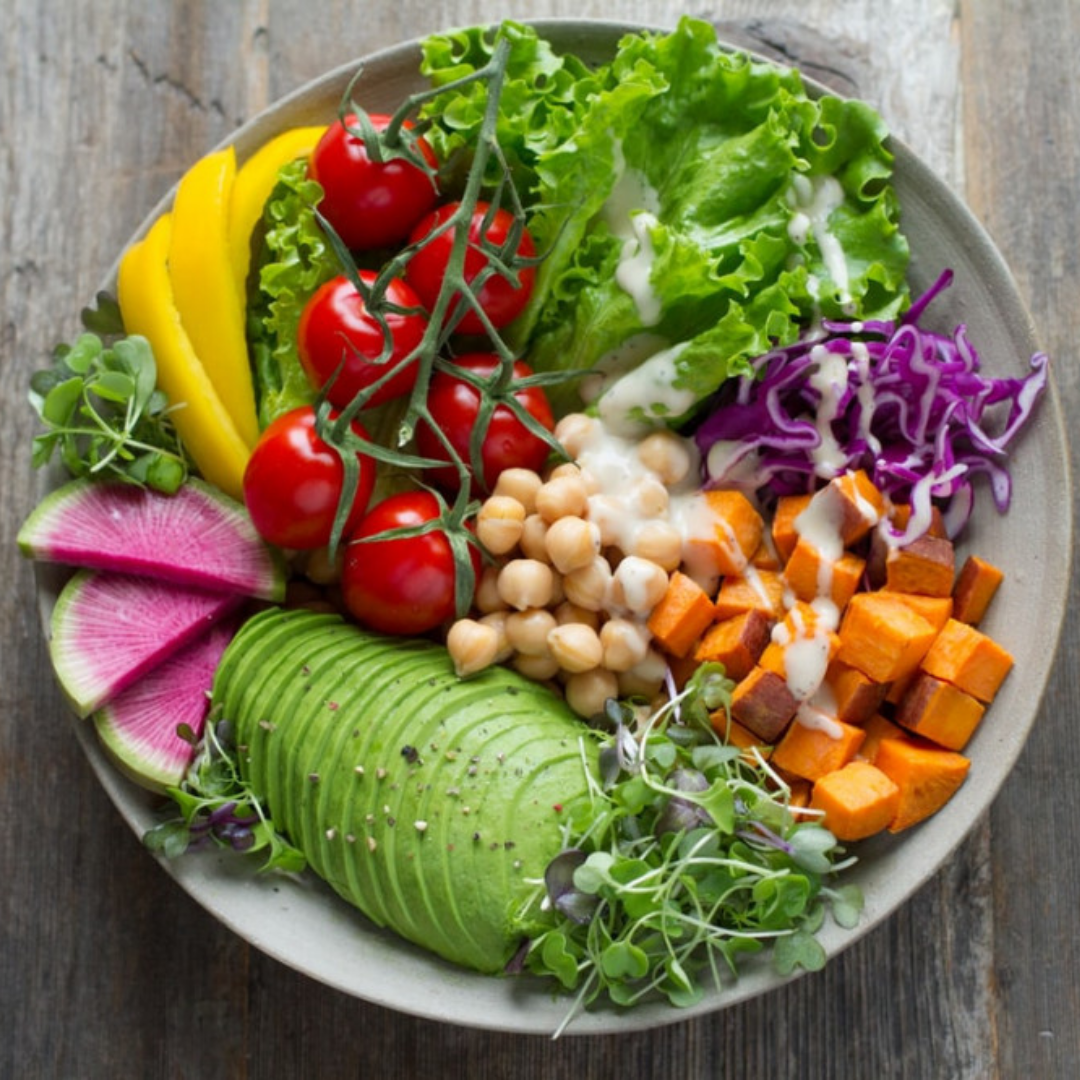
Health Benefits Of Veganism
Numerous health advantages of a vegan diet that improve overall well-being are possible.
According to studies, a well-planned vegan diet can reduce the risk of chronic illnesses like heart disease, type 2 diabetes, hypertension, and cancer.
Consuming a diet high in fiber, antioxidants, and phytochemicals, which support cardiovascular health and help ward off some malignancies, makes plant-based diets inherently low in saturated fats and cholesterol.
A vegan diet can support weight management and weight loss. Plant-based foods are generally lower in calorie density, high in fiber, and nutrient-dense, which can contribute to feeling fuller for longer.
Additionally, vegan diets are often associated with a lower body mass index (BMI) than those with animal products.
The high fiber content of a vegan diet promotes healthy digestion by aiding regular bowel movements, preventing constipation, and supporting a diverse and thriving gut microbiome.
This can reduce the risk of digestive disorders and promote overall gut health.
A carefully thought-out vegan diet can provide a multitude of vital nutrients.
Vitamins C and E, folate, magnesium, potassium, and other minerals are among the many vitamins, minerals, and antioxidants in plant-based meals.
A broad nutrient profile can be achieved, and good health is supported by consuming various plant-based foods.
According to research, eating a vegan diet may reduce your risk of rheumatoid arthritis, gallstones, and kidney stones.
These possible health benefits are attributable to the anti-inflammatory qualities of plant-based meals and their positive impact on cholesterol and blood sugar levels.
While a vegan diet can have many positive health effects, it must also be carefully planned to guarantee enough nutrient consumption, particularly for vitamins B12, iron, calcium, and omega-3 fatty acids.
A well-balanced vegan diet that satisfies all nutritional requirements can be achieved with the assistance of a healthcare practitioner or trained dietitian.

Veganism And Social Justice
Veganism extends beyond dietary choices and encompasses a broader commitment to social justice.
Veganism is rooted in recognizing the inherent value and rights of animals. It acknowledges that animals should not be exploited, abused, or treated as commodities.
Veganism aligns with the broader movement for animal rights and liberation, advocating for the ethical treatment of animals in all areas of life.
Veganism recognizes the interconnectedness of all forms of oppression and advocates for the rights and well-being of humans.
Many social justice issues marginalized communities face, such as food insecurity, access to clean water, and environmental degradation, are interconnected with animal agriculture.
By adopting a vegan lifestyle, individuals contribute to a more just and equitable society for all beings.
Animal agriculture significantly contributes to environmental degradation, including deforestation, water pollution, and greenhouse gas emissions.
Individuals reduce their ecological footprint and support environmental justice by choosing a vegan lifestyle.
Veganism aligns to create a sustainable and environmentally conscious society that respects the rights of all living beings.
Veganism recognizes that different forms of oppression intersect and overlap.
It acknowledges that social justice movements cannot be isolated and must address interconnected systems of oppression.
Vegan activists often advocate for the rights and well-being of marginalized communities and work towards creating a more inclusive and equitable world.
The choices individuals make daily, including their dietary preferences, have global implications.
By embracing veganism, individuals contribute to a more sustainable and just world by reducing the demand for animal products and supporting ethical and environmentally friendly practices.
Veganism and social justice movements are mutually reinforcing as they strive toward a more compassionate, equitable, and sustainable world for all beings.
By recognizing the interconnectedness of these movements, individuals can make more informed choices and actively work toward a society that values justice, equality, and respect for all.
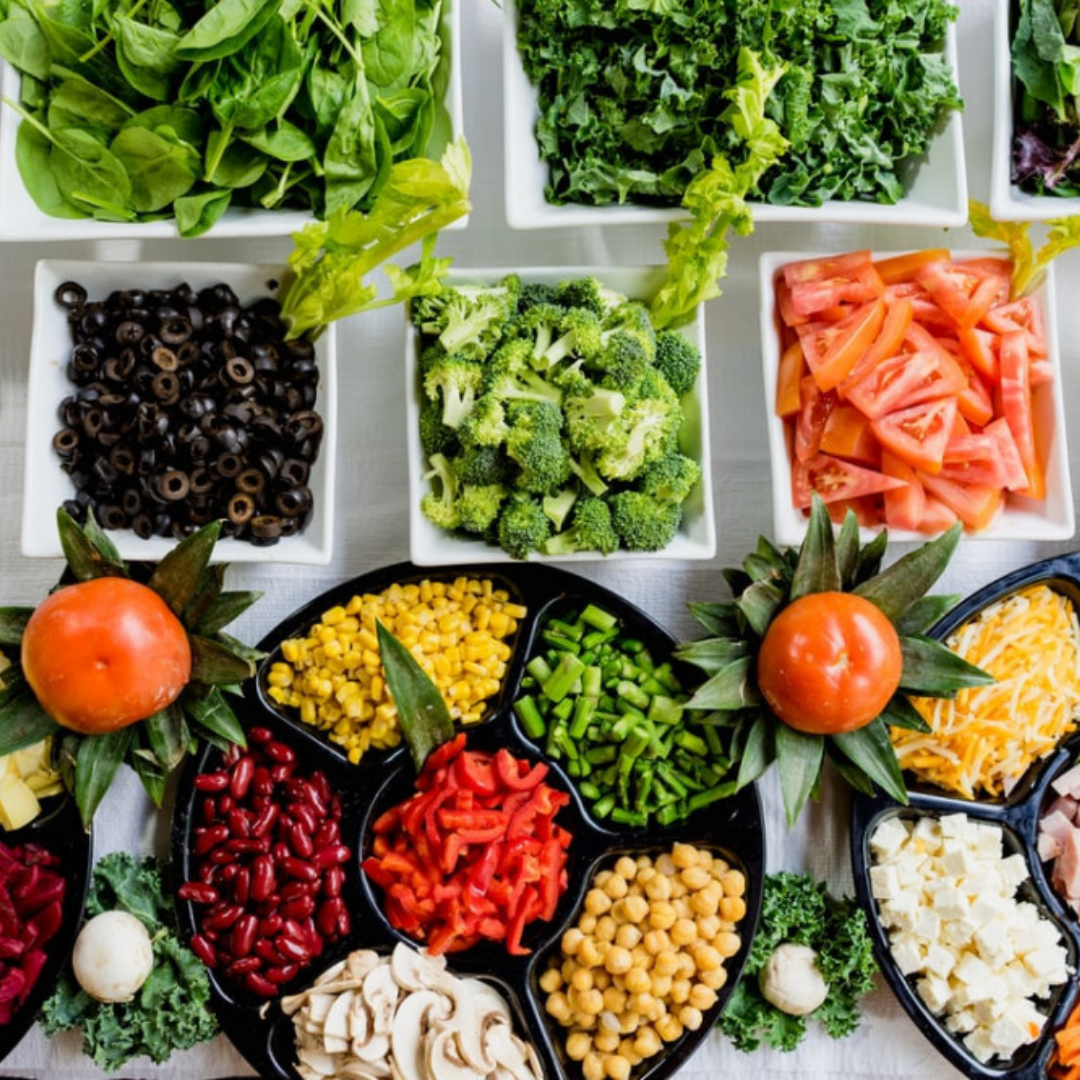
Vegan Nutrition
Adopting a vegan lifestyle involves excluding animal products from your diet, but it's essential to ensure that you still meet your nutritional needs.
1. Protein
Protein is crucial for building and repairing tissues, supporting immune function, and maintaining muscle mass.
Good vegan protein sources include legumes (beans, lentils, chickpeas), tofu and tempeh, seitan, quinoa, nuts, and seeds.
Mixing these protein-rich foods will help you effortlessly satisfy your daily protein requirements.
2. Iron
The body needs iron to move oxygen throughout it and to prevent anemia. For strong bones and healthy muscles, calcium is crucial.
3. Calcium
Calcium is typically linked with dairy products. However, there are also various vegan alternatives.
These include leafy greens (collard greens, kale), sesame seeds, almonds, and plant-based milk with added nutrients (soy, almond, and oat).
4. Vitamin B12
Vitamin B12 is primarily found in animal products, so vegans must ensure they obtain it through fortified foods or supplements.
B12 is essential for nerve function and the production of red blood cells. Look for fortified plant-based milk, breakfast cereals, nutritional yeast, or consider a B12 supplement.
5. Omega-3
Omega-3s are important for heart health and brain function. Good vegan sources include flaxseeds, chia seeds, hemp seeds, walnuts, and algae-based supplements, providing essential fatty acid DHA.
6. Vitamin D
Immune wellness and bone health depend on vitamin D. Although sunshine is the finest source, it can be difficult to get enough of it, especially in some seasons or places.
Consider having your vitamin D levels evaluated, and if necessary, talk to a doctor about supplements.
7. Zinc
Zinc is necessary for cell division, wound healing, and immunological function. Legumes, whole grains, nuts, seeds, and fortified cereals are vegan sources of zinc.
These foods can benefit from improved zinc absorption when soaked, fermented, or sprouted.
While a well-planned vegan diet can provide all the necessary nutrients, consulting with a registered dietitian or nutritionist may be beneficial to ensure you are meeting your individual needs.
They can provide personalized guidance and help you develop a balanced vegan meal plan that suits your preferences and lifestyle.
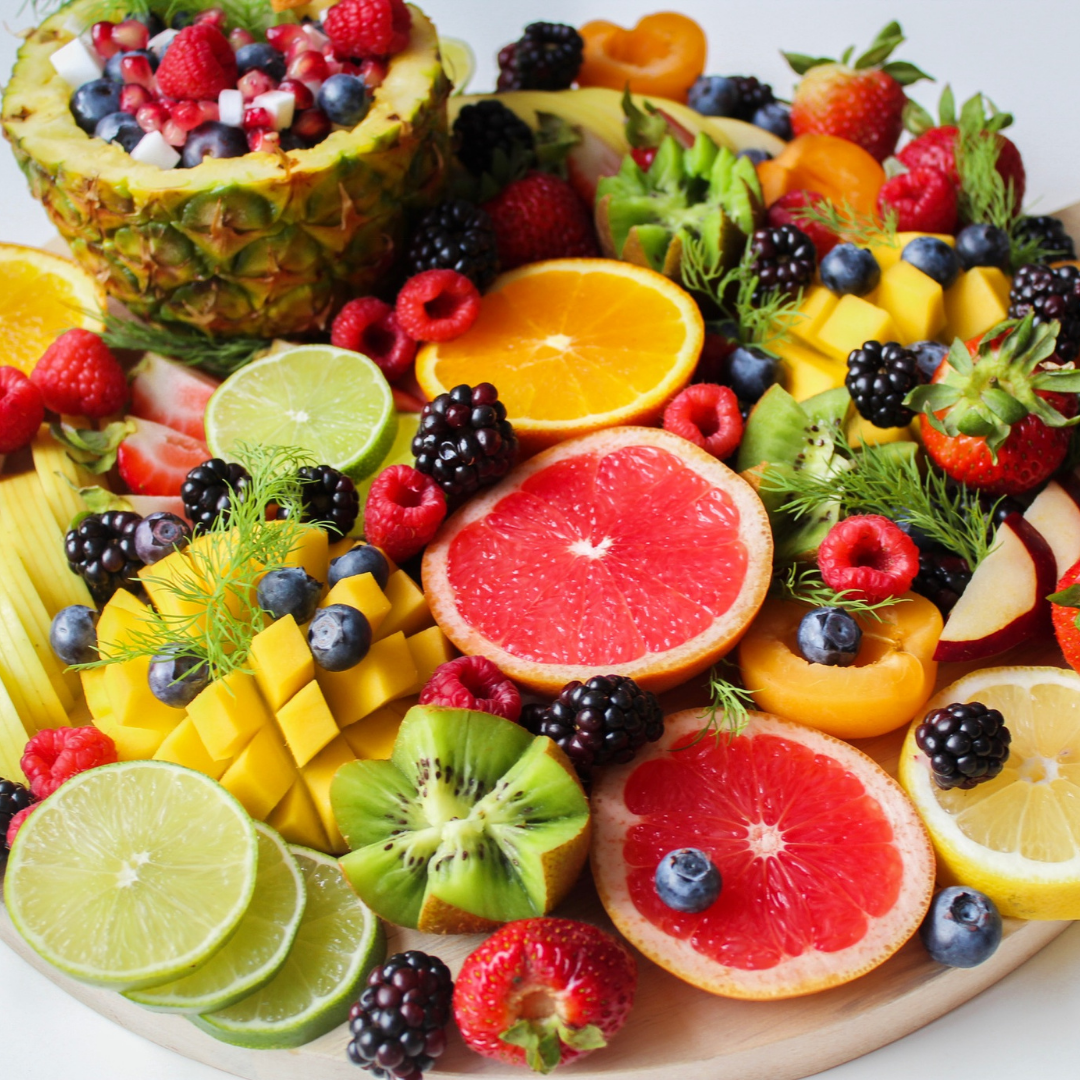
Debunking Myths
Several misconceptions surrounding veganism can deter people from considering or adopting a vegan lifestyle.
Let's address some of these myths and provide evidence-based information to dispel them:
1. Myth: Vegans don't get enough protein.
Fact: It is possible to meet protein needs on a vegan diet. Plant-based sources like legumes, tofu, tempeh, seitan, quinoa, and nuts are rich in protein.
Many plant foods contain various essential amino acids needed for protein synthesis.
2. Myth: A vegan diet lacks essential nutrients.
Fact: A well-planned vegan diet can provide all the necessary nutrients, including protein, iron, calcium, vitamin B12, and omega-3 fatty acids.
Vegans can meet their nutritional needs by including a variety of plant-based foods and, if necessary, fortified foods or supplements.
3. Myth: Vegan diets are expensive.
Fact: Vegan diets can be as affordable or expensive as any other diet. Staples like grains, legumes, fruits, and vegetables are often budget-friendly.
Buying in bulk, meal planning, and cooking meals at home can help make vegan eating more economical.
4. Myth: Plant-based diets are boring and lack variety.
Fact: Vegan diets offer a wide range of culinary options and flavours. With the abundance of plant-based ingredients, spices, and cooking techniques, countless creative and delicious vegan recipes are available.
Exploring different cuisines and experimenting with plant-based alternatives can excite vegan meals.
5. Myth: Vegan diets are not suitable for children or athletes.
Fact: Well-planned vegan diets can be appropriate for individuals of all life stages, including children and athletes.
It's important to ensure proper nutrient intake, particularly for children, by offering a variety of foods and considering fortified foods or supplements as needed.
Athletes can meet their energy and protein needs through plant-based sources and may benefit from professional guidance to optimize performance.
6. Myth: Vegan diets lack calcium for strong bones.
Fact: Calcium is available in various plant-based sources like leafy greens, fortified plant-based milk, tofu, and sesame seeds.
A vegan diet can support bone health when combined with adequate vitamin D intake and weight-bearing exercise.
7. Myth: Plant-based diets are deficient in iron.
Fact: Plant-based diets can provide sufficient iron through legumes, fortified cereals, dark leafy greens, and seeds.
Consuming iron-rich foods alongside vitamin C-rich foods can enhance iron absorption.
8. Myth: Vegan diets lack good sources of calcium.
Fact: While dairy products are commonly associated with calcium, many plant-based foods can provide adequate calcium, such as fortified plant-based milk, tofu, almonds, sesame seeds, and leafy greens like kale and broccoli.
It's important to ensure a well-rounded intake of calcium-rich plant foods.
9. Myth: Vegan diets are deficient in vitamin B12.
Fact: Vitamin B12 is primarily found in animal-based foods, and vegans may need to supplement or consume fortified foods to meet their B12 needs.
Fortified plant-based milk, breakfast cereals, and nutritional yeast are common sources of vitamin B12 for vegans.
10. Myth: Vegan diets lack essential fatty acids.
Fact: Essential fatty acids, such as omega-3 and omega-6, can be obtained from plant-based sources like flaxseeds, chia seeds, walnuts, hemp seeds, and algae-based supplements.
Including these sources in the diet can provide a sufficient intake of essential fatty acids.
11. Myth: Vegan diets are not suitable for pregnant women.
Fact: Well-planned vegan diets can provide all the nutrients for pregnant women and support a healthy pregnancy.
Paying attention to adequate calorie intake, iron, folate, calcium, vitamin D, and omega-3 fatty acids is important during pregnancy.
Consulting with a healthcare professional or registered dietitian is recommended to ensure proper nutrition.
12. Myth: Vegan diets are tasteless and bland.
Fact: Vegan diets are far from bland!
With a variety of fruits, vegetables, whole grains, legumes, herbs, spices, and plant-based condiments, there are countless flavours and combinations to explore.
Vegan cooking can be creative, flavorful, and satisfying, offering various culinary experiences.
13. Myth: Going vegan is an all-or-nothing commitment.
Fact: Veganism is a personal journey, and individuals can adopt it to varying degrees.
Some may be fully vegan, while others may opt for a mostly plant-based diet while making occasional exceptions.
Any step towards reducing animal product consumption can positively impact health, the environment, and animal welfare.
By addressing these myths and providing accurate information, we can help people better understand veganism and its associated benefits.
It's important to approach the subject open-mindedly, respect personal choices, and commit to sharing evidence-based knowledge.
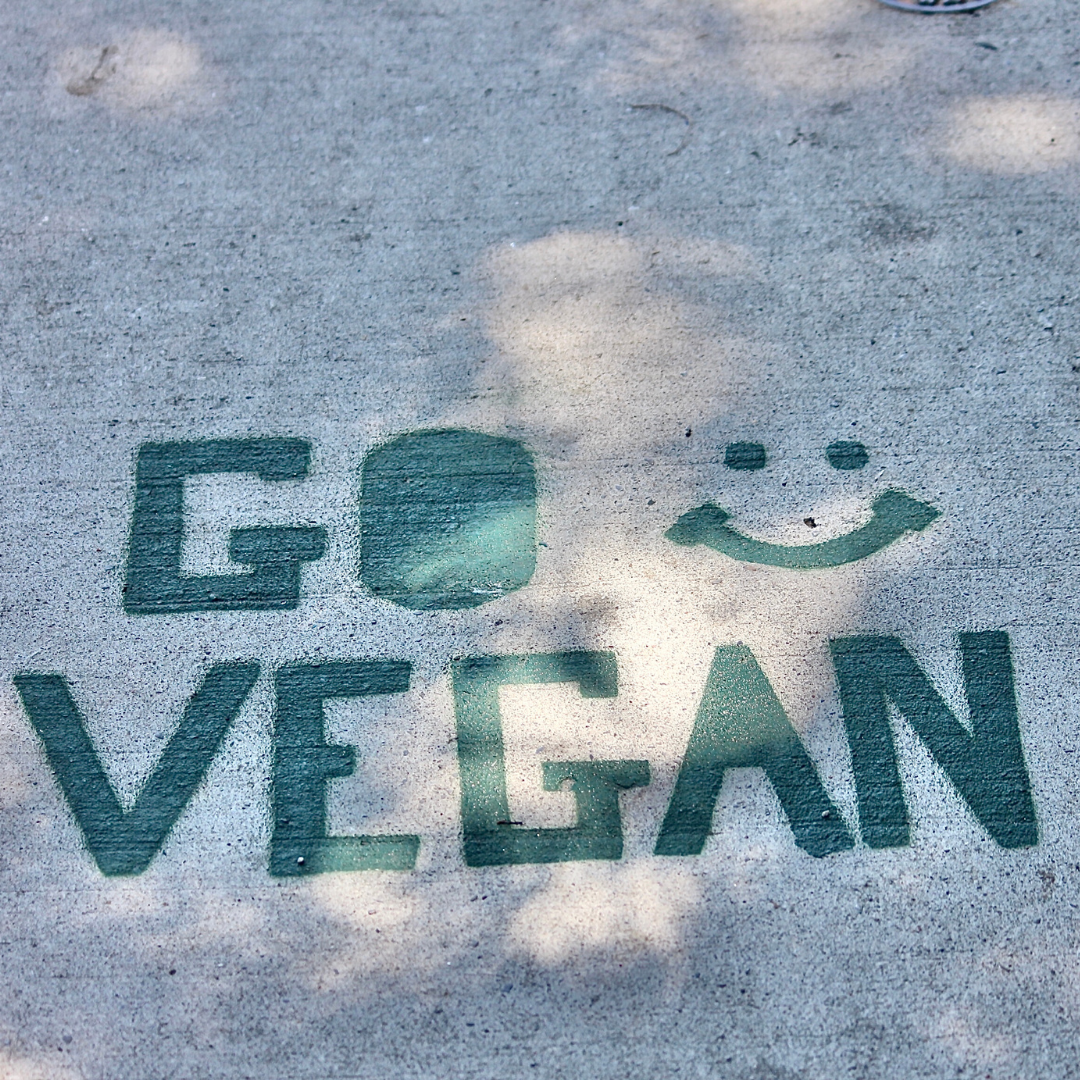
Tips For Getting Started
Transitioning to a vegan lifestyle can be an exciting and rewarding journey.
Whether you're motivated by health, ethical, or environmental reasons, it's important to have practical tips and guidance to help you get started.
These tips will help you navigate the transition smoothly and set you up for success in adopting a plant-based diet.
Here are some practical tips and advice for individuals interested in transitioning to a vegan lifestyle:
1. Educate Yourself
Start by educating yourself about veganism, including its principles, health benefits, and ethical considerations.
Read books, watch documentaries, and explore reliable online resources to deepen your understanding.
2. Gradual Transition
Consider gradually transitioning by incorporating more plant-based meals into your diet. This approach allows you to explore new foods, adjust your taste preferences, and learn new recipes.
3. Meal Planning
Plan your meals to ensure a balanced and satisfying vegan diet. Experiment with plant-based ingredients, explore new recipes and create a weekly meal plan to make grocery shopping and meal preparation more efficient.
4. Grocery Shopping
Familiarize yourself with vegan-friendly foods and ingredients. Stock up on essentials like tofu, tempeh, fruits, veggies, whole grains, legumes, nuts, and seeds.
Explore local grocery stores for vegan alternatives such as plant-based milk, cheeses, and meat substitutes.
5. Explore New Flavours
Embrace the opportunity to explore new flavours, cuisines, and cooking techniques. Incorporate a variety of herbs, spices, and seasonings to enhance the taste of plant-based meals.
Experiment with cooking methods like roasting, sautéing, steaming, and blending to create diverse and delicious dishes.
6. Vegan-Friendly Resources
Utilize online resources, cookbooks, and mobile applications dedicated to vegan cooking. They provide a wealth of recipes, meal ideas, and tips to support your transition.
Join vegan social media groups or follow vegan bloggers and YouTubers for inspiration and guidance.
7. Supportive Community
Connect with like-minded individuals and join local vegan groups or online communities.
Engaging with others who share similar values and experiences can provide valuable support, recipe ideas, and a sense of belonging.
8. Dining Out
Research vegan-friendly restaurants in your area and explore plant-based options on the menu.
Many restaurants now offer vegan options, and some even have dedicated vegan menus.
Don't hesitate to ask questions, request modifications, or suggest vegan alternatives when dining out.
9. Stay Open-Minded
Approach the transition with an open mind and be willing to try new foods and flavours.
Be patient and allow time for your taste preferences to adapt and evolve.
Explore and experiment with different ingredients and recipes to find what you enjoy the most.
10. Seek Professional Guidance
Consult a registered dietitian specializing in vegan nutrition if needed. They can provide personalized guidance to ensure you're meeting your nutritional needs and help address any concerns or questions.
Remember, transitioning to a vegan lifestyle is a personal journey, and being kind to yourself along the way is important.
Celebrate your progress and focus on your positive impact on your health, the environment, and animal welfare.
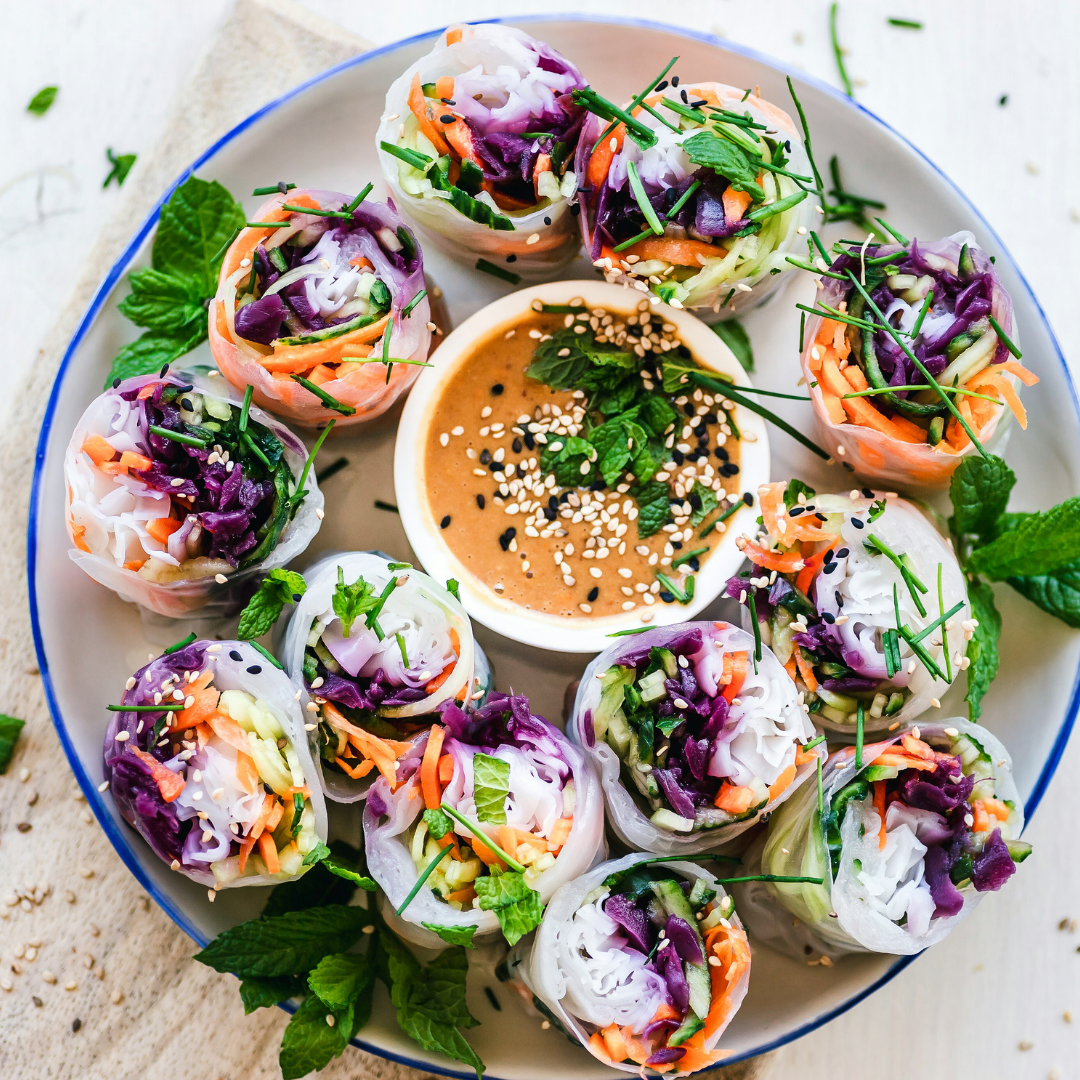
Conclusion
In conclusion, understanding veganism goes beyond just dietary choices. It is a compassionate lifestyle that respects animals, the environment, and our well-being.
We contribute to a more sustainable and ethical world by adopting a vegan lifestyle. We have explored the historical origins of veganism, its health benefits, its intersectionality with social justice movements, the importance of proper nutrition, and debunked common myths.
Additionally, we have guided overcoming challenges and practical tips for starting a vegan journey.
Understanding veganism empowers us to make conscious choices that align with our values and create positive change.
By embracing veganism, we advocate for a more compassionate and sustainable future for all.
I trust you enjoyed this article about Understanding Veganism. Please stay tuned for more blog posts to come shortly. Take care!
JeannetteZ
>>>Do You Want To Surprise Your Family And Guests With Delicious Vegan Lunches And Dinners Regularly? Become A Member At Veecoco – My #1 Recommendation – And Have Access To Over 700 Delicious, Healthy AND 100% Vegan Recipes<<<
Your Opinion Is Important To Me
Ideas? Thoughts? Questions? I would love to hear from you. Please leave me your questions, experience, and remarks about this article on Understanding Veganism in the comments section below. You can also reach me by email at Jeannette@LivingTheVeganLifestyle.org.
Disclosure
This post may contain affiliate links. I earn from qualifying purchases as an Amazon Associate and other affiliate programs. Please read my full disclosure.
Here are links to some of my favourite articles:
7 Delicious Vegan French Toast Recipes
6 Most Delicious Vegan Scallop Recipes

